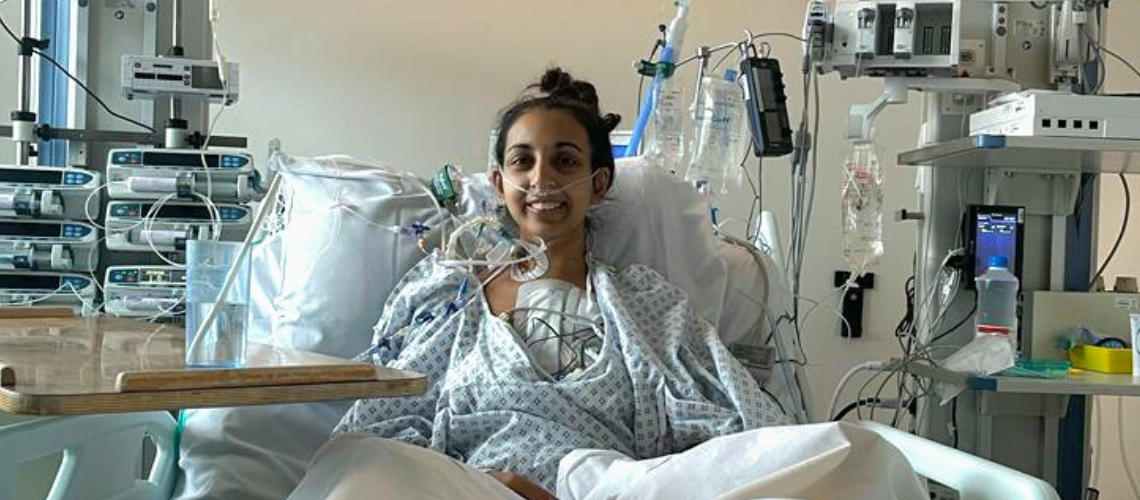
This story is adapted from an article originally written in 2023.
At 19, Sanjana, from Newcastle, was enjoying life at university when she started feeling breathless and her heart fluttered.
She decided to get checked out, not too worried at first, as she'd had asthma as a child. But a routine heart test delivered shocking news: her heart's rhythm was "grossly abnormal."
After more tests, Sanjana was diagnosed with cardiomyopathy. This is a condition where the heart muscle struggles to pump blood, leading to heart failure. While she managed her symptoms for a time, her specialist told her she would eventually need a new heart.
Sanjana, now 31 and living in Liverpool, said: “I think the clinicians were surprised that I was managing my symptoms so well, but I wasn’t under any illusion that the time would come when I needed the transplant. I was told that when things got worse, it would happen quickly and time wouldn’t be on my side. And that’s exactly what happened.”
Almost 10 years after the her symptoms first occurred, Sanjana was hit with severe chest pains and breathlessness. She was rushed to accident and emergency and admitted to a local hospital. She was so unwell that an ambulance transferred her straight to the intensive care unit at Freeman Hospital, a specialist referral centre in Newcastle.
“Logically, I knew the time would come when I needed the transplant, but it all felt so surreal at the time. There are periods of time I have no recollection of – I think my mind has blanked them out.”
- Sanjana
Sanjana's health worsened rapidly, leading to multiple organ failure. Doctors placed her on the super urgent transplant list, meaning she needed a new heart immediately to survive. Thanks to their care, she recovered enough to be moved to the urgent list that autumn, giving her a glimmer of hope.
While waiting, Dr. Jérôme Jungschleger, a heart and lung surgeon, spoke to Sanjana about a new study. Newcastle was one of only 3 UK centres testing an innovative method called the XVIVO Heartbox. This new technology aimed to keep donated hearts in better condition during transport. This could lead to more successful transplants and increase the number of available organs.
.jpg?language_id=1)
Sanjana said: “To be honest, I didn’t hesitate about taking part for a moment. Having been through this experience and knowing the lifeline organ donation provides, I wanted to do anything I could to help future patients going through similar situations.”
In the winter of the same year, she was the first patient in the UK to receive a heart transplant that used the Heartbox. Her recovery has been remarkable. She’s now back to gentle exercising, including cycling and short, steady hikes.
(Photo shows Sanjana smiling in the hospital corridor post-operation)
Sanjana said: “Despite having had a major operation, I woke up feeling amazing and just had this feeling that I’d been part of something special.
“I’m eternally grateful for the second chance I’ve been given thanks to the kindness of someone donating their heart and the opportunity to take part in this study.”
How you can get involved with research
Sign up to Be Part of Research to be contacted about a range of health and care research. Or check out our full list of studies to see if one is right for you.
And if taking part in a study doesn’t feel right at the moment there are other ways to get involved in research.




